By Maritz Global Events on 2/20/20 7:05 AM
Gaming and eSports are two of the fastest-growing segments in the event space. From high fan engagement to unquestionable brand loyalty, gamers are pushing the boundaries of how an event experience looks from a physical and digital perspective.
There are some incredible opportunities out there to capitalize on this market, but only if you know what you’re talking about.
As more sponsors, organizers, and cities move into this space, we at Maritz Global Events want to produce a “how-to” guide to help navigate the gaming space.
It’s important to learn from those who came before and respect the various languages and practices that have already been established.
What is eSports?
At a basic level, the term “eSports” is used to describe video game competitions, just like you would see at a real sporting event, except in a digital format.
At a high level, eSports is a player engagement tool that extends the player lifecycle of a game.
Video game publishers engage their highest-paying community members and offer another way to engage and retain their audience.
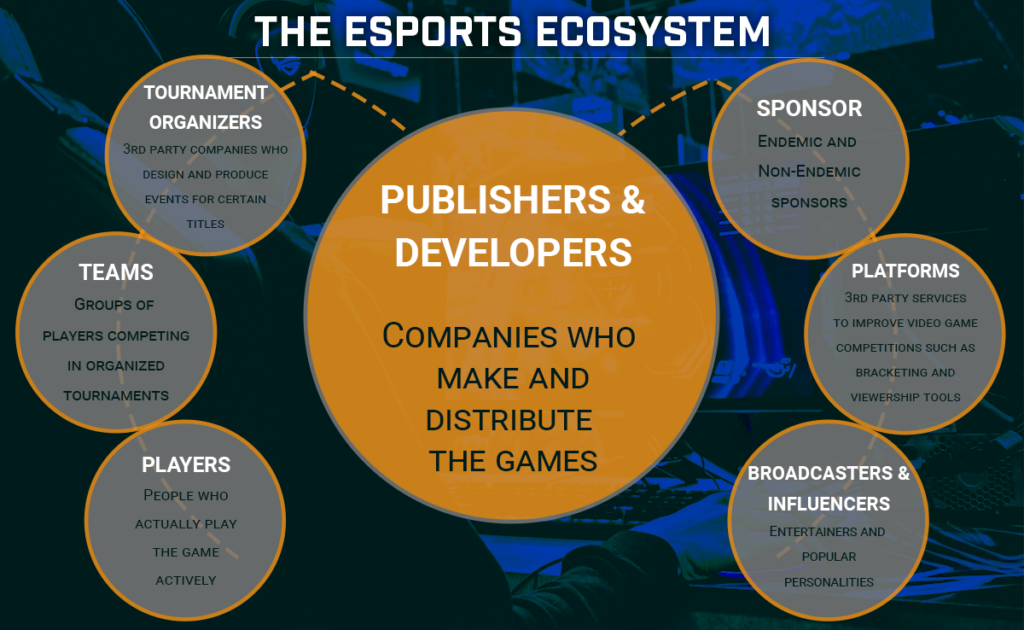
The Ecosystem of eSports
While there are several different verticals and players within eSports, it’s important to remember that the game publishers and developers reign supreme.
They own the ball for the sport and dictate how that ball is used in competition.
But that won’t slow things down at all.
While this is only a snapshot of some of the largest events, the international demand for eSports content continues to grow at an incredible pace.
While games like Fortnight, DOTA, League of Legends, Overwatch and Call of Duty are the most common eSport titles currently being played there are tons of games across multiple platforms around the world that are included.
We’re not even listing the mobile category, which continues to pick up steam in relation to the traditional eSport platforms.
Audience and Personas
Unlike traditional sports, eSports content is not locked behind a paywall. Gaming events are streamed live on Twitch, YouTube, or Mixer, free for everyone to watch.
This allows eSports companies to have a truly global audience who tunes in. A good eSport broadcast even takes into account the time zones of their active audiences, to ensure maximum viewership.
It is critical to incorporate design thinking into everything you do for your event and persona design is a great way to truly understand the thoughts and motivations of your attendees.
Here are a few of the most common gaming attendee personas we see:
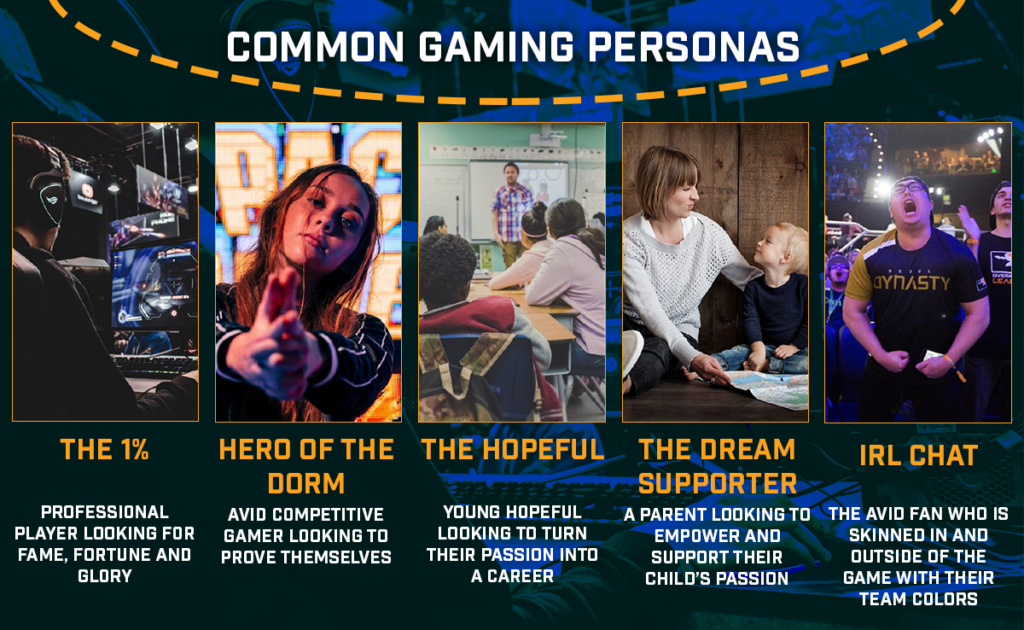
The eSports Funnel
The best way to understand eSports is to grasp how players of a game get into it.
eSports is only a small segment of the gaming population at large. As players spend more time with the game, they look for ways to demonstrate their skills.
Thus begins their journey into competing in organized competitions.
Here’s a breakdown of the funnel from top to bottom:
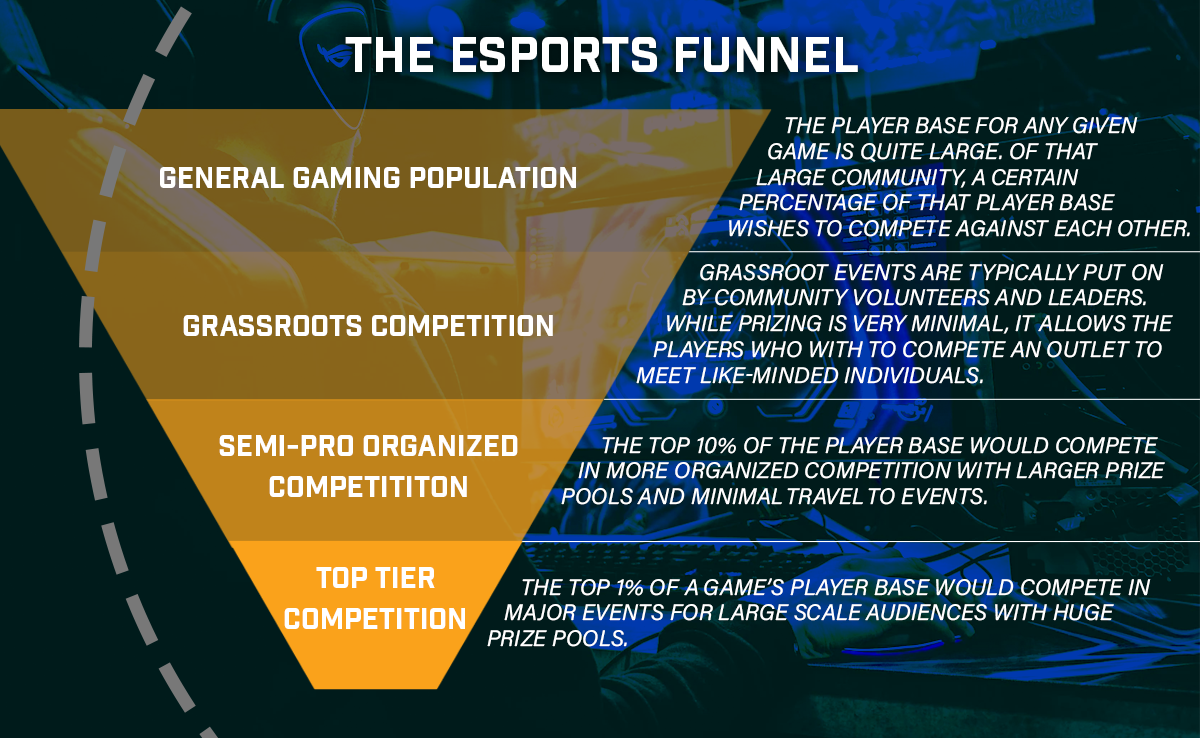
Major eSport Categories
eSports encompasses many different games and genres. Here we have highlighted some of the most popular genres of games found in competitions:
- Multiplayer Online Battle Arena (MOBA)- competitions are structured for team play. Includes games like Dota 2 and League of Legends
- First Person Shooter (FPS)- competitions are structured for team play and include games like Call of Duty and Halo.
- Real-Time Strategy (RTS)- typically structured for individual players, this includes titles like Starcraft (one of the eSports originals.
- Battle Royale- The competitions are typically for individual players, but new formats have popped up that pair amateur players with professionals. This is where you’ll find popular games like Fortnite and Apex Legends.
- Fighting Game Community (FGC)- individual players compete in games like Street Fighter or Super Smash Brothers.
- Sports- typically a 1-on-1 style matchup, you’ll find sport emulator games come closer and closer to the real thing each year. Madden NFL, NBA 2K (which actually has professional teams linked to the NBA franchises) and FIFA are the big names here.
Fun Fact: Starcraft, a real-time strategy game, is largely considered the "godfather" of eSports. Additionally, Counter Strike remains one of the top eSport titles globally, 20 years after its launch in 2000!
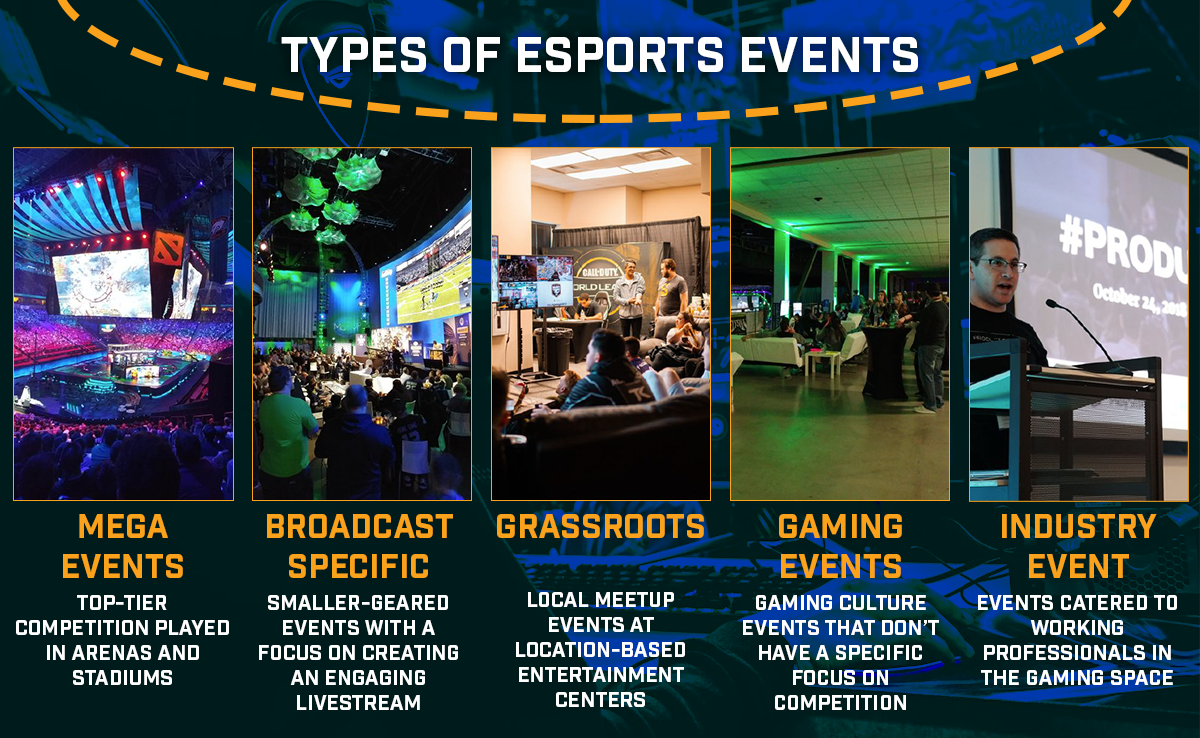
Types of eSports Events
More often than not when you think of eSports events, a Riot World Championship or a Fortnite World Cup is the scale that comes to mind.
However, there are countless eSports events, most of which do not fill the Barclays Center in New York.
Amateur, grass-root events are the most common and provide an important pipeline in promoting and growing attendance at the mega events.
It’s worth noting that there is a sharp uptick in eSport activations at pre-existing gaming events.
This is an excellent way to tap into the attendance that is already present and help provide more content and draw for said event.
If You Learn Nothing Else about eSports
Here’s a quick list of things you should remember if you take anything away from this piece:
- eSports DOES NOT EQUAL gaming. eSports is only a small segment of the overall gaming population (which is massive).
- Each gaming community is different in terms of values, content, language, and cultural norms. Be sure to understand the differences between them when deciding which title to choose for your event.
- Gamers are one of the most well-networked market segments in the world. If your message is adding legitimate value to a group of gamers, it will spread quickly. Influencer marketing is by far the most cost-effective tool for reaching the right segments.
- Invest in a well thought out and executed digital strategy. When an attendee or gamer vets your brand for their loyalty, your digital footprint is the main conduit to see if their values align with yours.
- The publisher/developer of the game is king. They own the football. Be sure to engage with the proper channels when securing licenses and rights. They have the power to shut you down.
Congratulations, you made it through eSports 101. But there’s still so much more to learn, especially if you’re trying to land a tournament in your city or convention center.
If you have any questions, email our Live Events team and we’ll be happy to walk you through the exciting—yet challenging—world of eSports.
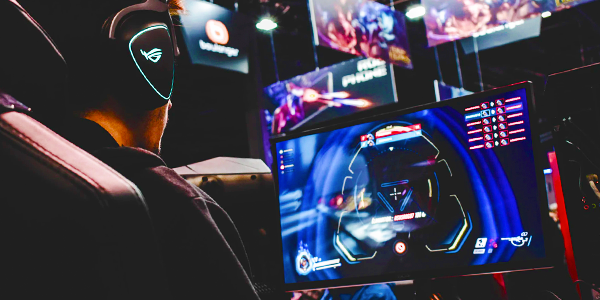

comments